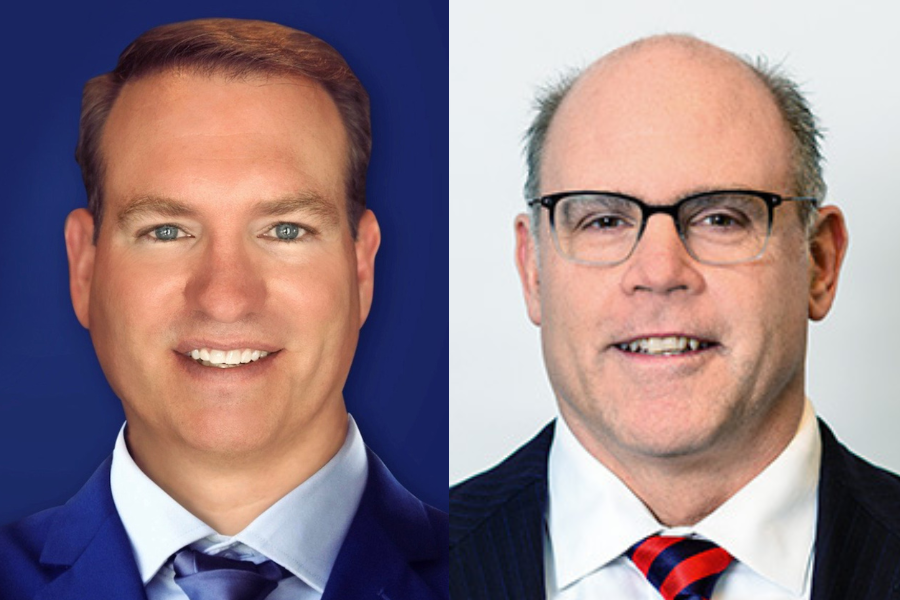

Financial advisors weren’t expecting a credit rating agency to downgrade U.S. debt two months after the country avoided a default, but they’re taking the move in stride.
Late Tuesday afternoon, Fitch Ratings demoted U.S. bonds from ‘AAA’ to ‘AA+,’ citing “expected fiscal deterioration” in coming years, the country’s “growing … debt burden,” and the “erosion of governance.”
The last point relates to Congress and the White House agreeing at the last moment to raise the debt ceiling earlier this summer. Advisors weren't worried then that the country would spurn its debt. Nor were they shaken up by Fitch’s decision, which came weeks after a potentially catastrophic default was averted.
“The timing is surprising, but it’s not totally unexpected,” Francisco Ayala, an advisor at The Coleridge Group, said of the downgrade. He noted that Fitch has had a negative rating watch on the United States for a while.
“This has more to do with politics than the economic stability of the U.S.,” Ayala added.
Lisa Kirchenbauer, founding partner and senior advisor at Omega Wealth Management, also was caught off guard by the Fitch announcement.
“My initial reaction last night was, ‘Wow, this is a little late,” Kirchenbauer said. “I don’t think it’s worth panicking about.”
Jeff Farrar, founding partner at Procyon Partners, also was sanguine, noting that Fitch is the second credit agency to downgrade U.S. debt.
“S&P did it [more than] 10 years ago, and we’re still stumbling on. Nothing’s gotten better,” Farrar said. “It’s not great, but it doesn’t mean the world is going to end tomorrow.”
The problems that Fitch cited regarding the brittle politics in Washington were hardly a revelation, advisors said.
“It’s not telling us anything we don’t already know about our government,” said Steve Ankerstar, CEO of Ankerstar Wealth. “If the U.S. was any other country — or company — they would have already downgraded.”
The relatively muted market reaction – with the Dow falling about three-quarters of a percentage point as of early afternoon Wednesday — was a good sign.
“The overall strength of the economy is why [the sell-off] is not worse,” Ankerstar said. “But [Fitch does] make valid points about the long-term fiscal deterioration of the U.S. government.”
The downgrade is not causing advisors to reevaluate client portfolios.
“There has been corporate news that has impacted the Dow more than this downgrade,” Ayala said. “Investors are just looking past the noise.”
Kirchenbauer is focused on the Federal Reserve’s next move on interest rates, corporate earnings and the ever-looming potential recession. “The fact that markets are up this much always makes me incredibly nervous,” she said.
Assessing the chance of a second-half economic slowdown is a higher priority than the downgrade.
“If the economy stays strong, we’re going to remain long,” Ankerstar said.
But there was one reaction to the downgrade that has investment implications for Ayala’s clients. Yields on 10-year Treasury bonds increased to about 4%.
“We’re taking this as an opportunity to go farther out on the yield curve to capture safe and high yield,” Ayala said.

Carson is expanding one of its relationships in Florida while Lido Advisors adds an $870 million practice in Silicon Valley.

The approval of the pay proposal, which handsomely compensates its CEO and president, bolsters claims that big payouts are a must in the war to retain leadership.

Integrated Partners is adding a husband-wife tandem to its network in Missouri as Kestra onboards a father-son advisor duo from UBS.

Futures indicate stocks will build on Tuesday's rally.

Cost of living still tops concerns about negative impacts on personal finances
RIAs face rising regulatory pressure in 2025. Forward-looking firms are responding with embedded technology, not more paperwork.
As inheritances are set to reshape client portfolios and next-gen heirs demand digital-first experiences, firms are retooling their wealth tech stacks and succession models in real time.
